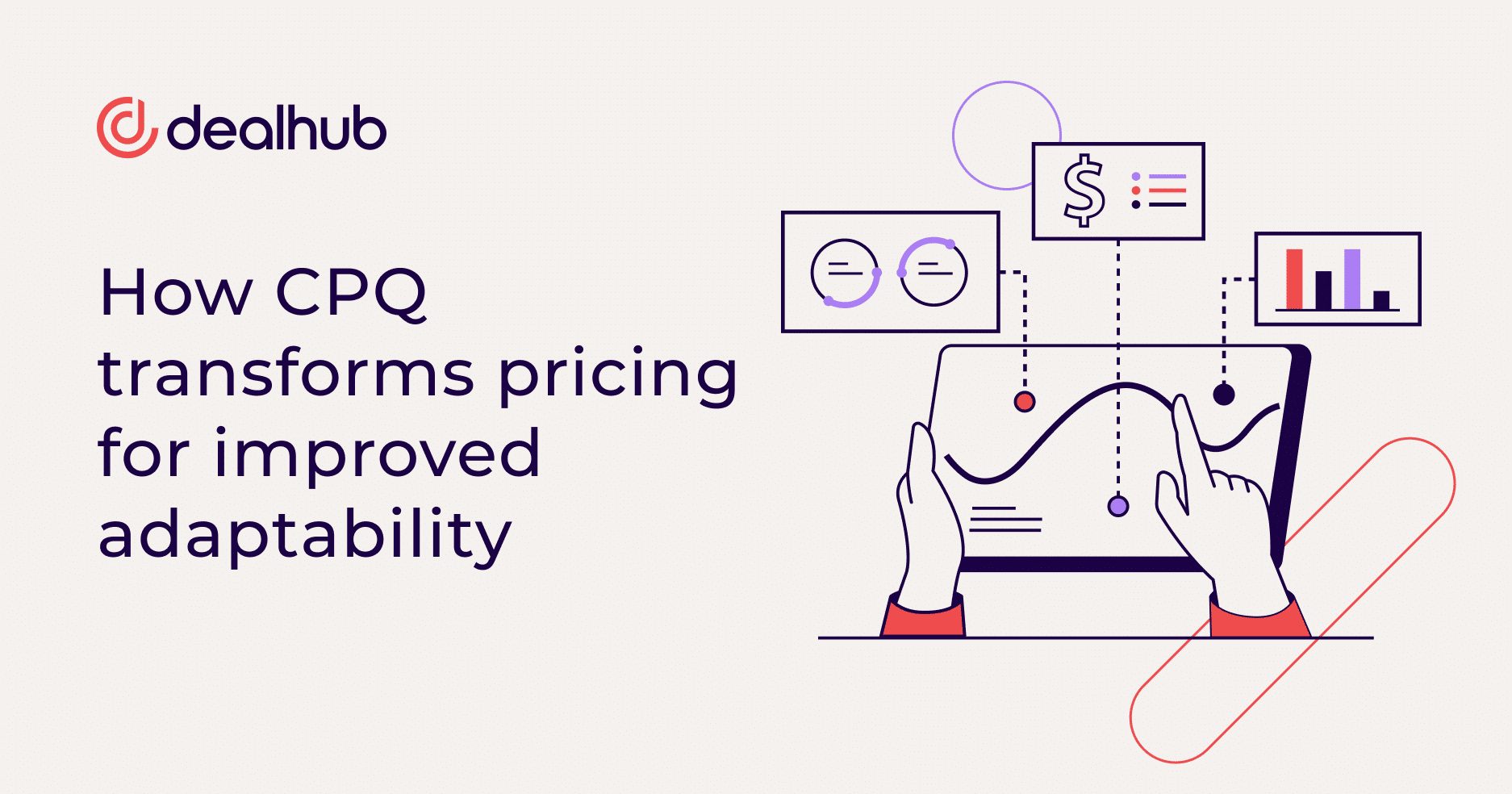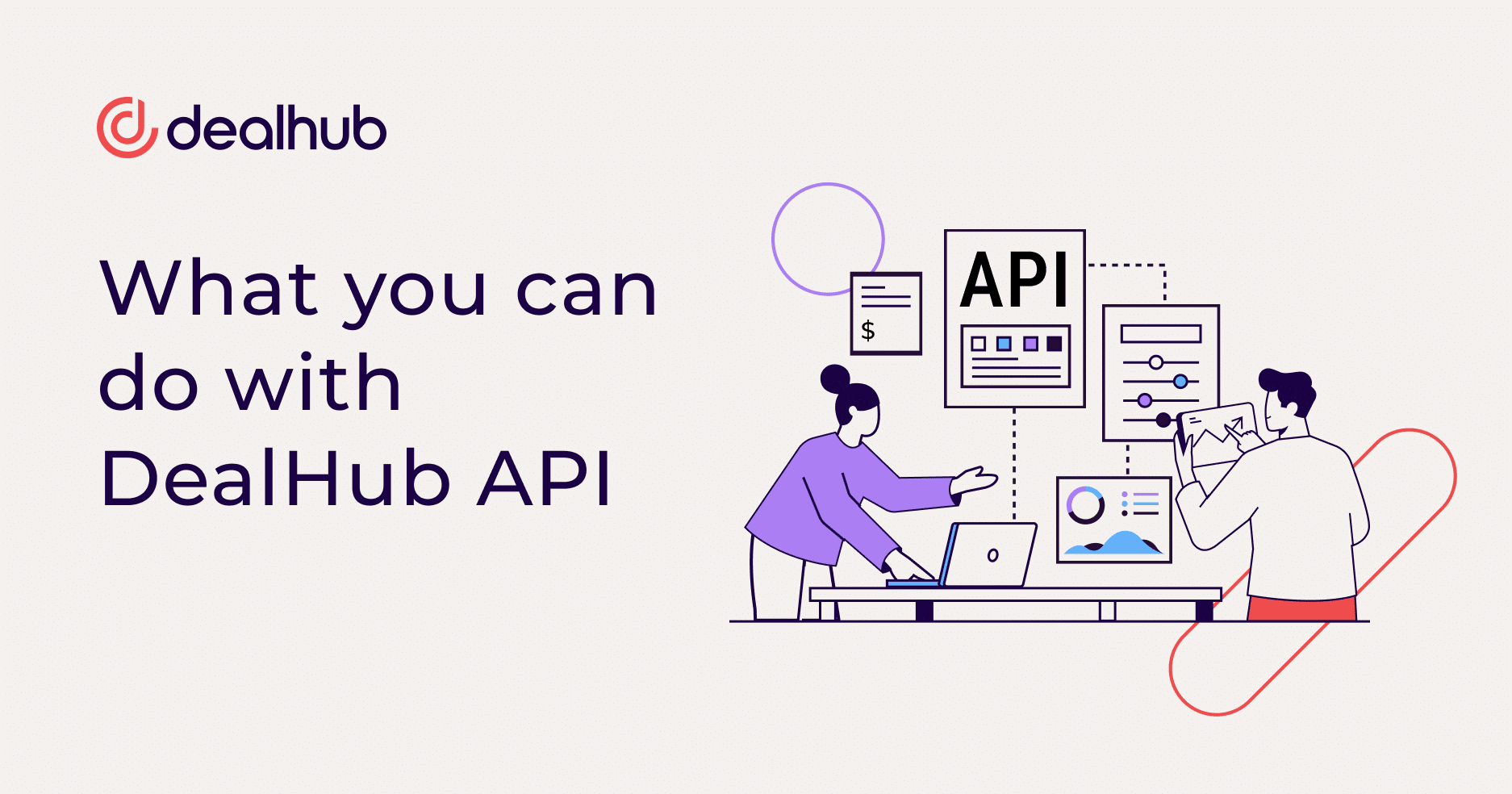Our recent article on building a culture of adaptability touched on a subject many Sales Operations leaders are interested in as they look for ways to help their organizations prosper in a volatile and disruptive economy. Of particular interest to Sales is ensuring operational adaptability by investing in adaptive technologies that transform pricing. Leveraging CPQ to execute dynamic pricing strategies is an example of this. This article expands on this topic by exploring how CPQ helps companies quickly adapt their pricing structures based on market changes, customer dynamics, or competitive pressures and why adaptability in pricing is crucial for organizations to thrive.
Transforming pricing for improved adaptability

Transforming pricing in an enterprise organization involves strategic changes in how prices are set, managed, and optimized across the business. This transformation aims to make the organization more adaptable in its pricing strategy, enabling it to respond effectively to disruptive market changes, changes in customer needs, and pressure from competitors. There are several ways in which pricing transformation can contribute to increased adaptability.
Data-driven decision-making: Pricing transformation often involves leveraging advanced analytics and data science to gather insights from internal and external data sources. This allows organizations to make informed decisions based on market trends, customer behavior, and other relevant factors.
Dynamic pricing models: Implementing dynamic pricing models enables organizations to adjust prices in real time based on demand, competition, and market conditions to stay competitive and maximize revenue.
Agile pricing processes: Traditional pricing processes can be slow and rigid. Pricing transformation often involves streamlining and automating pricing processes, making the organization more agile in executing new pricing models.
Adaptation to regulatory changes: In industries where regulations impact pricing, organizations must be able to adapt quickly to regulatory changes by updating pricing models and compliance processes.
Global market considerations: For organizations operating in international markets, refining pricing processes and tools helps them adapt to varying economic conditions, cultural differences, and competitive landscapes across regions.
Adaptability in price management
Let’s focus on one area of particular interest to Sales leaders: the ability to change pricing as needed in response to market changes or when new products and packages launch.
Given ever-changing markets and customer behaviors, adaptability in price management is essential. The ability to respond swiftly to market volatility, competitive pressures, and economic changes is crucial for maintaining competitive pricing strategies that align with current conditions. Sales operations need to be nimble in adjusting pricing models to meet evolving customer expectations, seamlessly incorporating new products, and responding to shifts in the competitive landscape.
Furthermore, global economic conditions, regulatory changes, and technological advances necessitate an adaptable approach to ensure pricing strategies remain relevant and effective across diverse markets.
In addition to addressing external factors, adaptability is required to align pricing strategies with the organization’s strategic objectives. Whether the focus is on market share growth, profitability, or customer retention, an adaptable approach allows the company to tailor pricing strategies to support overarching business goals.
One of the primary tools at the disposal of Sales in their effort to remain adaptable is CPQ.
The role of CPQ in adaptability
CPQ plays a pivotal role in facilitating adaptable pricing management while ensuring deal integrity. CPQ software contribute to the accuracy and reliability of quotes presented to customers. Changes during the deal process won’t blindside customers because pricing will stay the same once the quote is created. This not only enhances the credibility of the sales team but also instills confidence in customers that the proposed deal aligns precisely with their requirements. Integrating CPQ with other systems, such as CRM and ERP, further ensures consistency and accuracy throughout the quoting process.
Customizable guardrails around pricing
Additionally, CPQ enables flexibility in pricing within the parameters set in the pricing engine. These customizable guardrails are crucial for agile price management and empower sales teams to operate within strategic parameters while maximizing deal value. The CPQ system can also incorporate dynamic pricing models, adjusting quotes based on demand, competition, and promotional strategies in real time. Sales teams can utilize CPQ’s capabilities to explore various pricing scenarios, optimize margins, and tailor offerings to specific customer segments. This adaptability, supported by the tool’s pricing rules, enables sales operations to navigate complex pricing landscapes with agility, ensuring competitiveness and responsiveness to evolving market conditions.
Maximizing deal value
CPQ maximizes deal value by optimizing profitability and enabling dynamic pricing adjustments. The software allows Sales Ops to set strategic parameters within the system, aligning pricing strategies with overarching business goals. By optimizing profitability, CPQ ensures that quotes generated align with predefined margin targets, preventing underpricing and enhancing revenue.
CPQ also facilitates dynamic pricing adjustments by leveraging real-time data on market conditions, competition, and customer behavior to maximize deal value further. This adaptability enables sales teams to respond promptly to changes, adjusting prices dynamically to meet demand or capitalize on specific opportunities. The ability to operate within strategic parameters ensures that each deal is tailored to customer needs and aligned with the organization’s profitability objectives, ultimately maximizing the value of each transaction.
The impact of adaptability on price management
A real-world example of CPQ supporting adaptability and pricing agility is Drift’s implementation of DealHub. In CPQ, it’s essential to be able to build new rules into the system while honoring legacy pricing for things you’ve already sold. Testing becomes a major issue in these scenarios. Drift found that manual testing was time-consuming, error-prone, and costly. When prices and packages change, it causes a lot of friction with the front line when trying to ship the new product or package swiftly. There’s a tradeoff between testing and quality when trying to move fast. With DealHub, Drift’s product team can remain agile and test quickly, which enables their sales team to go live with new products, up-sells, cross-sells, and packages fast.
Balancing flexibility and consistency in pricing
CPQ can help your sales team strike the right balance between flexibility and consistency in pricing. DealHub CPQ is a centralized yet adaptable platform that allows organizations to set and manage pricing rules, ensuring consistency across various products, services, and customer segments. Establishing these guidelines will align your pricing with your overall business strategy and profitability objectives.
Simultaneously, DealHub CPQ introduces flexibility into the pricing process. It allows your revenue team to adapt pricing strategies dynamically based on changing market conditions, competitive landscapes, and customer preferences. The system can incorporate dynamic pricing models, enabling real-time adjustments to account for factors such as demand fluctuations or promotional campaigns. This flexibility is vital for your organization to remain agile in response to evolving business environments.
Moreover, CPQ ensures your sales teams can customize quotes within the defined parameters. This flexibility enables them to tailor pricing to specific customer needs and negotiate deals effectively, fostering a customer-centric approach. The balance between flexibility and consistency provided by CPQ contributes to a more efficient and adaptable pricing strategy, promoting competitiveness in the market while maintaining coherence across the organization’s pricing structure.





